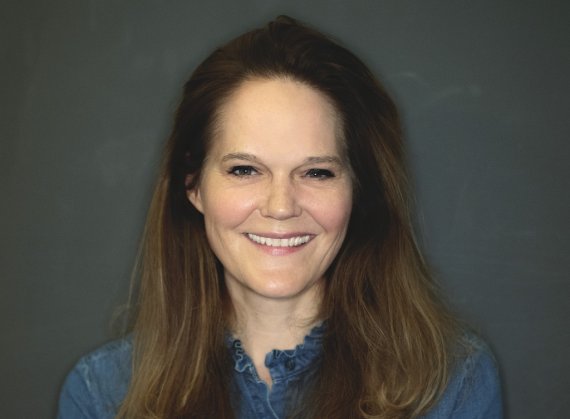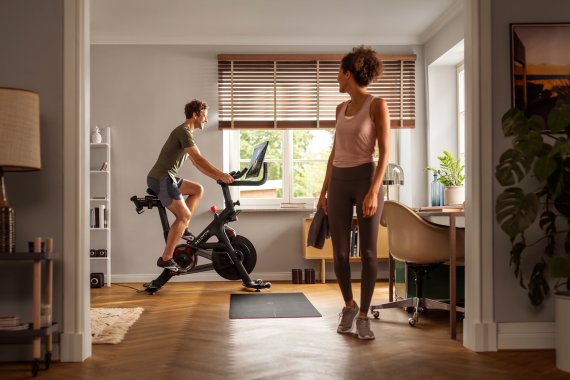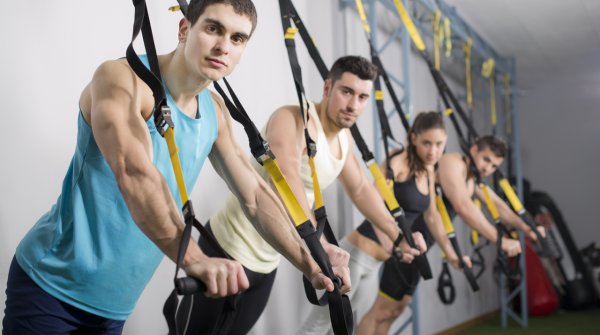
The now listed company with headquarters in New York sees itself as a "global fitness platform - completely rethought". The product portfolio includes two Peloton bikes and the "Tread" treadmill with a large screen, as well as the Peloton app.
The Connected Fitness courses are available as livestream and on-demand. Fresh content comes daily from live studios in New York and London. The trainers are some of the best in the world, according to Peloton. The brand seems to be hitting the mark with this concept.
Rapidly conquered Peloton has also been conquering the German market since the end of 2019. ISPO.com spoke with Anke Drewicke, Head of Marketing Germany at Peloton, about the success story.

ISPO.com: Peloton was founded by John Foley in 2012. Things were bumpy in the beginning. What brought about the decisive turnaround to success?
Anke Drewicke: We achieved the turnaround with a successful concept that we still use today: We offer the opportunity to try out Peloton. To this end, we have created stores where real training sessions can be held. They show what Peloton is all about. Because until then, a haptic, tangible reference was missing.
Were there other challenges?
Overall, Peloton first had to completely reposition the entire home fitness category - especially as a concept today. Until then, it had not existed in this form either in the USA or in Germany. For Germany in particular, we were faced with the challenge of launching not just a new product, but a completely new category. Boutique fitness would be the closest word to describe Peloton.
The published 2020 annual revenue statement: $1.8 billion in revenue. Where does the tremendous success come from in their view?
From the combination of:
- High-quality, comfortable hardware,
- intuitive software...
- top-notch, diverse courses,
- our incredibly motivating international instructors,
- a uniquely extensive music selection,
- as well as our member community from all over the world...
...and ultimately the unique training experience that results.In addition, there is the easy accessibility at any time - from the comfort of your own home.
How big a boost has the Corona pandemic given Peloton?
The importance of Home Fitness, especially in Germany, has increased extremely.
Peloton already existed before the pandemic. Because the relevance and the need on which we base our concept were there before Corona - and will be there afterwards. Of course, needs arose in the pandemic period for which there was no offer elsewhere, so a focus on Peloton resulted.
We will continue to establish ourselves as a digital fitness platform and invest in a wide range of offerings.
And what does the Corona year mean in metrics?
The number of members has doubled from March 2020 to today - from 2.2 to 4.4 million worldwide. What I find particularly interesting is that the number of workouts per membership per month has increased from around 12 to 24 over the same period.
Peloton was only present in English-speaking countries until the end of 2019, with the US, Canada and the UK. Then Germany followed suit. Why.
Germany is a fitness nation. And very interested in terms of innovation and technology. We also notice that in the detailed queries from our members and their know-how. That's great.
A Peloton bike costs from 2145 euros. The new Peloton + is around 2700 euros - without accessories like shoes or dumbbells. A hefty price...
This is more a question of value than a question of price. The bike costs its price because we offer hardware that will still look great in 5 years, is reliable and has a screen that can be used to instantly access thousands of courses. Produced with our own trainers, in our own studios, in the best quality and to the best music.
Plus a monthly fee of 39 euros...
Exactly. This is an "all-access membership". This means that all family members can use all course offerings with their own user profile and can access around 25 new courses every day. Similar to Netflix. And that also puts the overall offering into perspective: I don't know of another product of the quality and with such a broad professional course offering for this price.We also offer an app membership for 12.99 per month.
How do you define your target audience?
Basically: You and me (laughs).
Quite simply people who care about sports and know what fitness can do for them. I'm a mother, if I'm not physically fit and can't carry kids or the groceries properly, I'm in for a problem.
These days, it's also about: how do I fit the time I spare for exercise into my daily routine in a meaningful way? That's where we see Peloton as a "one-stop fitness solution" that combines everything.
My bike is at home next to my desk. If I have a free hour, or my child is sleeping next door, I jump on the bike and train highly efficiently with good music. I couldn't do that otherwise. There's no way I could get to the gym, the class, showers and the ride back in an hour - let alone leave the kid alone. So convenience is also a factor for the target group.

Classic spinning thrives on the experience of slogging through blood, sweat and tears in a group, cheering each other on. Can Peloton do that - and how?
Yes, I have already left a lot of blood, sweat and tears on this bike (laughs). For the courses, we produce relevant content on a daily basis to engage people personally. Our trainers go heavy into storytelling. I'll freely admit: I've even shed a tear on the bike on occasion.
Basically, everyone has different needs. Personally, I am happy to slave away alone on the bike. I would have greater inhibitions next to others in the course room. It also helps me focus. I'd be more distracted in the studio.
...and the community is supposed to contribute to the feeling of community while pedaling in front of the screen? How does that work?
An initial orientation is provided by hashtags, which members can follow. During the courses, the leaderboard is visible on the screen. It shows which and how many members are participating - and their performance in real time. There is the possibility to give each other virtual "high-fives". As a "hello" or extra incentive. And there's the community's extended strand in social....
In what way?
Our social channels are virtually managed by our community itself. In the fan account "German Ladies" for example, members arrange virtual group rides - also on special occasions such as birthdays. The members give each other tips, motivate or advise people who are undecided. A real meeting in Berlin was also arranged in this context, including a visit to the Peloton Store. In short: There is a strong feeling of togetherness through the joint, virtual training. The community is very open-minded and friendly.
For a lovebrand like Peloton, I feel this is an absolute asset. We are very grateful for that.

Is Peloton looking to replace traditional gyms?
We believe that a good fitness and workout experience is location-independent. Whether it's outside, at home or in the gym, everyone decides for themselves.
I see the advantage of Peloton in the "just an arm's length away", high-quality fitness experience. We position ourselves complementary to premium gyms, only in the best place in the world: at home. Our concept enriches and expands the fitness community.
So the Peloton concept expands the fitness community and opportunity?
That's right. Also in terms of outdoor sports. We have a lot of members who use the Peloton Bike in bad weather or in the summer season when it's hot - or do strength classes or stretching specifically for outdoor runners with us in addition to running, for example. This makes the workouts more well-rounded and efficient overall.
How will the market for "Home Fitness" develop?
I'm always excited when I look at this industry. Peloton was one of the first in this field. Now more brands are coming in, bringing new concepts. That's good: for the individual sports and fitness enthusiast to find his or her perfect fit and for the home fitness category as a whole.
I am convinced that we are only at the beginning. There is still a lot of potential and room.
And what specific topics will be important in the future?
Member Centricity is and will remain a big topic. Just like the topic of community.
With Peloton, we have chosen the ideal solution, because we are very focused on our members and can respond quickly to their needs. For example, by introducing new features on the bike almost every week. We remain flexible and have the security of knowing that we are not designing the product past the target audience.
In December 2020, Peloton bought the Precor brand from Amer Sports for US$420 million. With what goal in mind?
In the US, and to a lesser extent in the UK, Canada and Germany, Peloton bikes are also in hotels. There is a hotel finder on our website that shows hotels equipped with Peloton depending on the search query.
Because there are also other possibilities outside of living rooms or bedrooms to position Peloton as a premium product. These include hotels and fitness facilities, of course. With Precor we have thus acquired the infrastructure.
At the end of 2020, you announced your cooperation with the DFB Academy. What do you expect from this?
When it comes to fitness, the DFB stands for functional excellence like no other - we have a lot in common when it comes to this claim. I remember the first time Jürgen Klinsmann trained the national soccer team with a professional fitness approach from the USA. Germany promptly became world champions.
For us, it's more of a content partnership and less of a marketing partnership. Our trainers talk to the DFB trainers - and vice versa. Of course we have DFB course series on the bike. This allows us to tap into the huge, fitness-minded target group of fans in Germany who are interested in football.
Peloton was also present at ISPO Munich Online with a public live stream contribution. How was it?
It was good - the digital format of ISPO Munich. We were happy about the talk with Erik Jäger (Peloton Trainer) and Simone Schubert (DFB Academy) on the topic of "Fitness in professional sports". was there. In times like these a welcome change. Nevertheless, we are looking forward to when ISPO Munich takes place offline again and we can meet in person again.
 Know-HowThe 11 Best TRX Exercises
Know-HowThe 11 Best TRX Exercises
- Awards
- Mountain sports
- Bike
- Fitness
- Health
- ISPO Munich
- Running
- Brands
- Sustainability
- Olympia
- OutDoor
- Promotion
- Sports Business
- Textrends
- Triathlon
- Water sports
- Winter sports
- eSports
- SportsTech
- OutDoor by ISPO
- Heroes
- Transformation
- Sport Fashion
- Urban Culture
- Challenges of a CEO
- Trade fairs
- Sports
- Find the Balance
- Product reviews
- Newsletter Exclusive Area
- Magazine





